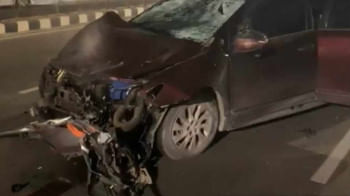Can we afford a dream budget?

The finance minister last Thursday presented a budget of Tk 761,785 crore, which is 15.33 percent higher than this fiscal's revised budget. Like any other usual ones, it has been portrayed as expansionary and future-oriented. However, one could barely see any reflection of the current challenges being faced by most in the country.
Two positives that can be noticed from the budget is the environmental tax (may be construed as carbon tax) – possibly influenced by the World Bank's loan conditionalities – imposed on owners of more than one car, and the allocation for startups that the government hopes can transform the country. This may not hold much water for the common people struggling for the hike in the prices of essentials.
The budget proposed increasing the tax-free income threshold, but only slightly, while the real income of most taxpayers at the lower echelon has gone down significantly. It increased the surcharge-free limit of wealth from Tk 3 crore to Tk 4 crore, though only few rich even pay wealth surcharge.
It also proposed increasing the monthly allowance for the elderly, widowed, deserted, and destitute women which is still a very negligible amount. It proposed the imposition of a minimum tax of Tk 2,000 for individuals who are required to submit income tax returns to avail themselves of 38 government services, even if they do not have taxable incomes.
This budget continued to rely more on indirect taxes, thought to be an easy way out having failed to expand the direct tax net for years.
It has also come up with an inflation target of 6 per cent although the prices of essentials in the local market do not show any signs of rationalisation despite international price reduction.
Most of the budgetary measures give little hope of achieving it especially in an election year and without effective reforms.
The budget also set a highly ambitious revenue collection target of Tk 500,000 crore, with Tk 430,000 crore to be collected by the NBR. Though there is IMF loan terms pressure, most believe given that the NBR has failed to meet its tax collection target in the past 11 consecutive years, and that the newly proposed target will be its greatest challenge to date, we see no reason to believe that it will be different this time.
The budget says the government expenditure will be financed by significant borrowing from the banking sector which may lead to depriving the growth sector operators, not to mention increase of the government's debt burden. Like in the recent past, it may be financed by borrowing from the central bank ending up with more note printing, which will obviously create a further pinch on inflation.
The government also plans to finance the deficit via foreign borrowing despite squeezing bilateral or multilateral aid or loan pipeline.
It is said that the IMF had quite a bit of influence in the budgetary process, but that has not been echoed in the allocation for the healthcare and education sectors, with both sectors receiving lower percentages of the total outlay as compared to last year. The IMF is also opposed to government subsidies. Yet it is unclear what the government plans to do about its energy subsidies.
Understandably with a lot of external and internal challenges, the overall lack of initiative and courage pretty much sums up the proposed budget, which was neither pro-poor nor national nor international private sector friendly.
It has been observed for the last several years that the people related to putting up the budget start with many hopes or reforms agenda but end up with a very ordinary budget, constrained, maybe, by political realities, lack of accountability and ability to go beyond the box through innovation.
The author is an economic analyst


 For all latest news, follow The Daily Star's Google News channel.
For all latest news, follow The Daily Star's Google News channel. 



Comments